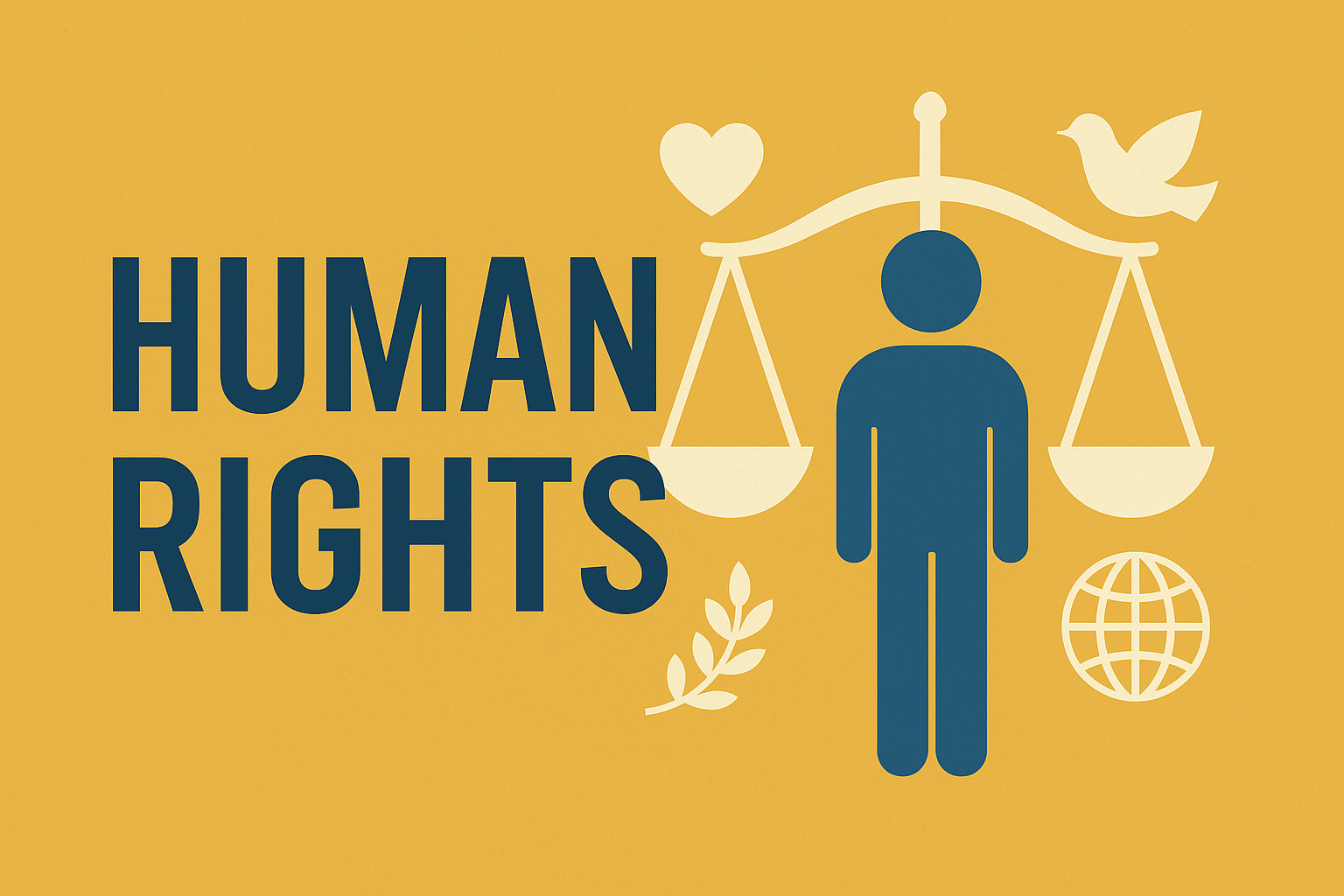Human Rights - Smart Study Academy
🌐 Human Rights: The Foundation of Freedom and Dignity
Brought to you by Smart Study Academy – Empowering learners with knowledge that matters.
🔍 Key Aspects of Human Rights (Point-Wise Overview)
- Definition and Meaning
- Types of Human Rights
- Features/Characteristics
- Importance of Human Rights
- International Framework
- Human Rights in India
- Challenges/Violations
- Protection Mechanisms
- Role of Citizens and Youth
- Future Outlook
📌 What Are Human Rights?
Human Rights are the basic rights and freedoms to which every individual is entitled — regardless of nationality, gender, race, religion, or language. These rights guarantee each person a life of dignity, liberty, and equality.
Key Definition: "Human rights are those rights which are essential for a human being to live with dignity, freedom, and justice."
📚 Types of Human Rights
| Type | Examples |
|---|---|
| 🗣️ Civil & Political | Right to life, freedom of speech, right to vote |
| 🏥 Social Rights | Right to education, healthcare, and shelter |
| 💼 Economic Rights | Right to work, fair wages, and social security |
| 🎭 Cultural Rights | Right to language, religion, and cultural expression |
| 🌱 Environmental Rights | Right to a clean and safe environment |
⭐ Main Characteristics
- 🌍 Universal: Apply to everyone
- 🔒 Inalienable: Cannot be taken away
- ⚖️ Indivisible: All rights are equally important
- 🔗 Interdependent: One right depends on others
🧭 Why Are Human Rights Important?
Human rights empower people and protect societies.
- 🧑⚖️ Protects dignity and justice
- 🏳️🌈 Ensures equality and freedom
- 🕊️ Prevents exploitation and violence
- 🗳️ Strengthens democracy
- 🚀 Supports development and innovation
🌐 International Framework
The Universal Declaration of Human Rights (UDHR) was adopted by the United Nations in 1948. It is the most recognized global human rights document, influencing laws worldwide.
🇮🇳 Human Rights in the Indian Context
India protects human rights through Fundamental Rights in the Constitution:
| Article | Right |
|---|---|
| Article 14–18 | Right to Equality |
| Article 19–22 | Right to Freedom |
| Article 23–24 | Right against Exploitation |
| Article 25–28 | Right to Freedom of Religion |
| Article 32 | Right to Constitutional Remedies |
👮 National Human Rights Commission (NHRC): Established in 1993 to safeguard human rights in India.
⚠️ Challenges to Human Rights
- 🚫 Discrimination (gender, caste, race)
- 💰 Poverty and lack of education
- 🧨 Conflicts and war zones
- 🔒 Censorship and surveillance
- 🧑⚖️ Weak enforcement of laws
🛡️ Protecting Human Rights
- 📖 Education and awareness
- 🧑⚖️ Stronger legal frameworks
- 🌐 International cooperation
- 📢 Support civil society activism
- 🧑🎓 Youth participation in advocacy
🌟 Role of Youth and Education
Platforms like Smart Study Academy play a powerful role in spreading awareness about human rights. Through quality content, interactive learning, and civic education, we help shape a responsible and informed generation.
"A well-informed student today becomes a responsible human rights defender tomorrow."
🔮 Conclusion: Toward a Fairer Future
Human rights are not privileges – they are entitlements.
To build a just and peaceful world, every citizen must understand, respect, and stand up for these rights. Through education, empathy, and action, we can ensure that human rights are not just written on paper, but lived in reality.
🌐 For more articles like this, visit Smart Study Academy – your partner in smart, socially aware learning.
📘 Stay informed. Stay empowered.
